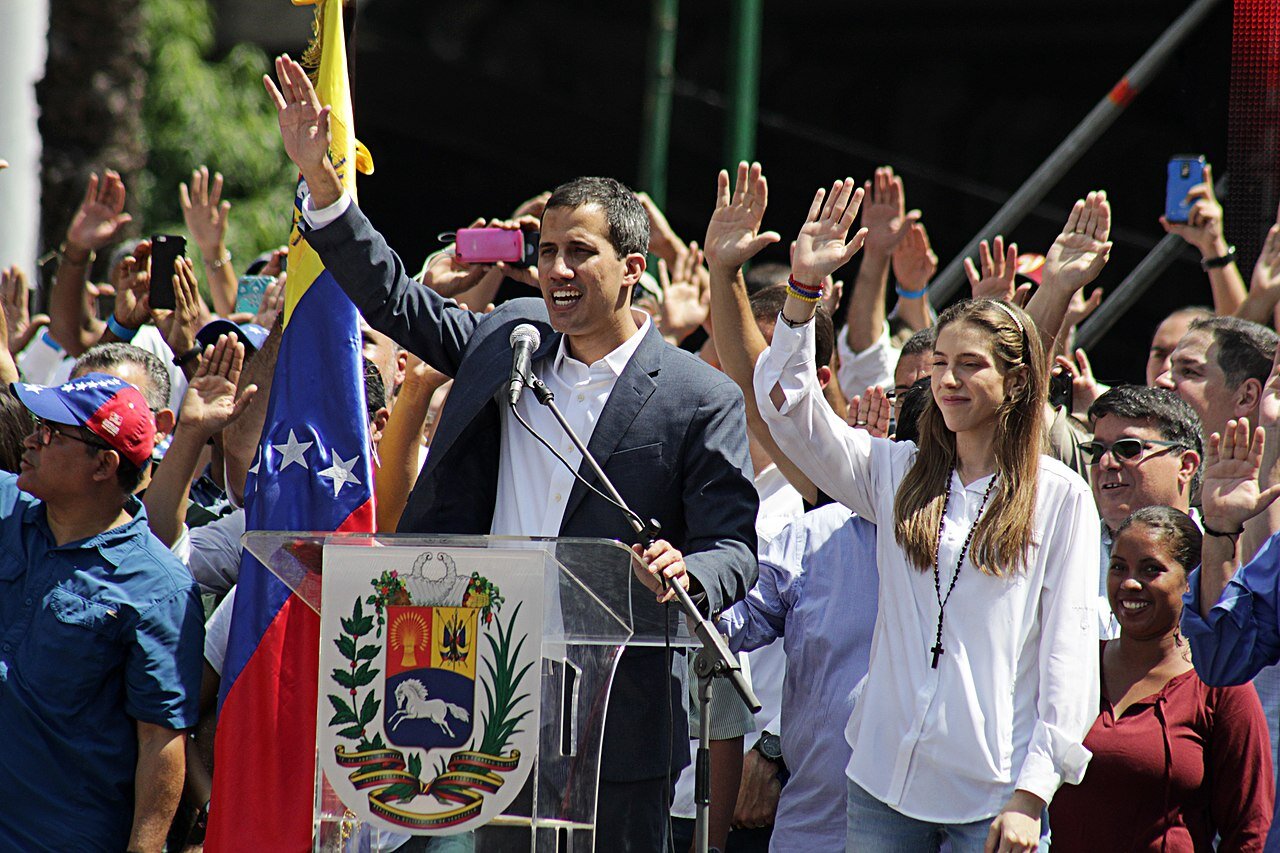In a vote to determine the country’s next president of the National Assembly, equivalent to U.S. Speaker of the House, Juan Guaido who held the position since last January failed to secure a second term, losing to Luis Parra who garnered 81 out of 150 votes.
The presidency of the legislature is renewed yearly on the 5th of January, and it was after gaining this position last year that Juan Guaido was able to utilize the constitutional authority to declare himself “Interim-President of Venezuela” after the re-election of current Chavismo president Nicolas Maduro carried allegations of fraud.
Months later on April 30th, Juan Guaido, who is recognized as the legitimate president of Venezuela by the U.S. and many other nations such as France and the UK, launched what some reporters have described as the “Venezuelan Bay of Pigs,” – an open call to overthrow the government which failed after brief clashes with military forces.
On Sunday the State Department congratulated Juan Guaido on his re-election, which took place illegitimately in a nearby newspaper office, after he was denied entry into the legislative chamber.
Et tu, Brito?
Knowing his only chance to continue the struggle lay in retaining the presidency of the National Assembly, Guaido introduced a bid to allow for remote voting in parliament in December hoping that he could add the votes of some of his supporters in parliament who have fled the country to his tally.
The opposition-controlled legislature approved the motion and sent it to the Venezuelan supreme court, which struck it down as unconstitutional.
The new slate of elected leaders in the National Assembly was presented by a deputy called Jose Brito. Brito led a group of lawmakers in a break away from the support of Guaido after the most recent of the several scandals which have undermined the Interim President’s credibility.
Brito, and new National Assembly President Luis Parra allegedly accepted bribes from a Colombian businessman under United States sanctions in exchange for lobbying to have such measures lifted. The individual, Alex Nain Saab Moran, apparently took advantage of Venezuela’s food importation programs to make himself fabulously wealthy.
“Through a sophisticated network of shell companies, business partners, and family members, Saab laundered hundreds of millions of dollars in corruption proceeds around the world,” the Treasury statement of his sanctioning reads.
Disputed elections
According to Guaido, on the day of the vote he was stopped from entering the legislative building, accusing security forces of barring his way. A video circulated on social media which showed Guaido climbing over a fence to get onto the building grounds.
Al Jazeera reports that after being prohibited from entering the building, Guaido was “re-elected speaker” in an improvised vote, which “took place at a newspaper office hours after Parra [had assumed power]”.
VZ Analysis however reported that nearly all of the MPs were able to enter without any problems. This claim comes from William Davila, a staunch Guaido supporter, who along with his colleagues, had no trouble getting into the building to cast his vote.
If this is true, it would just be the latest in a number of seriously damaging scandals Guaido has found himself mired in since he set out on his path towards seizing power in Venezuela.
#5Ene | Esto sucedía a las afueras del Palacio, Régimen impidió por la fuerza que entráramos para armar su show.
En breve habrá una sesión formal #ANFirmePorVzla pic.twitter.com/L19wNzqRRw
— Asamblea Nacional (@AsambleaVE) January 5, 2020
Crime and punishment
The Constitution of the Bolivarian Republic of Venezuela states that while a parliamentarian enjoys immunity during his term in the National Assembly, any cases of crimes committed by an MP will be shared with the Supreme Court and kept in confidence until the conclusion of his or her term in office.
Should a parliamentarian commit “flagrant crime” the constitution states that he or she should be detained and held in their place of residence while the case is reviewed by the Supreme Court.
With that in mind, there may be several cases held in trust, which may have had an effect on Guaido’s ability to enter the legislative chamber.
These might have included the theft of hundreds of thousands of dollars in USAID money that was destined to help Venezuelan refugees seeking asylum in Colombia. The money was spent on lavish hotels and resorts, expensive jewelry and watches, and trips to exclusive nightclubs in Bogota.
Another chance to throw the book at Guiado could come from a September leak that showed him posing with members of hard-right Colombian paramilitary leaders from Las Rastrojos, who have reportedly been involved in trafficking, illegal mining, kidnapping, targeted killings, and extortion.
Perhaps the most damning on all came in September when Guaido was charged with high treason after audio recordings of him negotiating with ExxonMobil over oil access in a disputed border region between Venezuela and Guyana were leaked to the Venezuelan press.
If investigators have found clear evidence that Guaido is guilty of any of these crimes, the constitution states that his cases should be withheld until his term in office is over, or he should be apprehended and placed under house arrest – an incredibly risky move considering the widespread support for Guaido’s claim to the presidency among U.S. lawmakers and European nations.
However knowledge that such crimes may have been committed could be used as legal justification for preventing him from casting a vote.
Meanwhile, as Guaido’s support among the public shrinks – now down to 40% or less – with every passing month and every passing scandal, his flame seems to be closer to extinguishment than ever before. WaL
PICTURED ABOVE: Juan Guaido at an anti-Maduro protest in the Venezuelan Capital. Photo credit Alex Cocopro via Wikimedia. CC 4.0 Int



